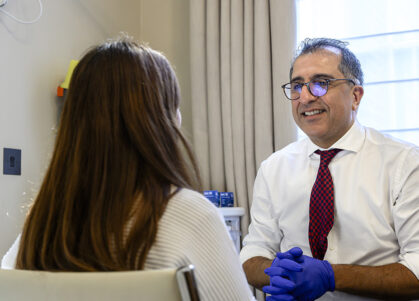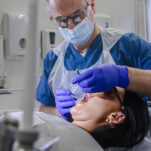Quality Of Treatment
The Association of Consultants & Specialists In Restorative Dentistry hold a clear view. Stating that remedial options today are of a multidisciplinary nature, making a maxillofacial consultant’s role essential.
Parliament took a close look at implants and other areas, through written evidence and debate. They were supported by the Royal College of Surgeons (RCS) Faculty of Dental Surgery and made key recommendations:
- Patients must be informed about risks, the range of treatment options available and ongoing support where appropriate.
- Skilled periodontal checks are vital to ensure that problems are detected which may threaten the stability of implants.
- The GDC should improve peri-implant assessment education, at undergraduate level and amongst the dental community.
- Training for complex dental treatment should ensure patients will be treated by a suitably qualified professional.
- The Law Commission’s proposals on specialisms should be supported. Specialist should mean what people would expect.
The legislative view is that professionalism matters, for patient safety and to ensure their treatment brings the result they seek.
The RCS summarised the overall need on quality of patient care. Restorative dentistry, prosthodontics, implants, oral surgery and periodontics requires providers to have the necessary validated and robust training.
Similar views exist in internationally recognised research. An NCBI paper on evidence based dentistry & oral surgery stated that essential knowledge derives from clinical expertise and good surgical procedures.
Whilst most dental professionals will try to offer the best care, there is a clear view that specialist skills matter to meet individual needs.
Personal Support
Each of us have a unique dental profile, different lives, or health needs. Treatment timing can matter, sedation requirements will vary, or the level of post extraction care prior to restoration work.
Existing conditions can influence decisions, perhaps for patients with natural, or medication induced osteoporosis. Your entire jaw pathology should be understood, from cysts to be dealt with, to structural issues.
Decisions on oral surgery, or restorative dentistry require great care and should be tailored to personal requirements. This is more likely to happen if the person you choose to treat you has in depth clinical knowledge.
The Maxillofacial Accord
In established nations across the globe, there is a recognition that oral surgery is both dental and medical in nature. This is why maxillofacial consultants are required to be qualified in medicine and dentistry.
A skilled dentist may be able to offer valuable help and core elements of oral surgery. They will not however have spent 20 years reaching dual consultant standard and gained wide ranging experience during this time.
We would be pleased if you call, or visit us to discuss your needs, although the key is to find good support wherever you are. Most restorative treatment is a once in a lifetime event and deserves the right choice on care.


